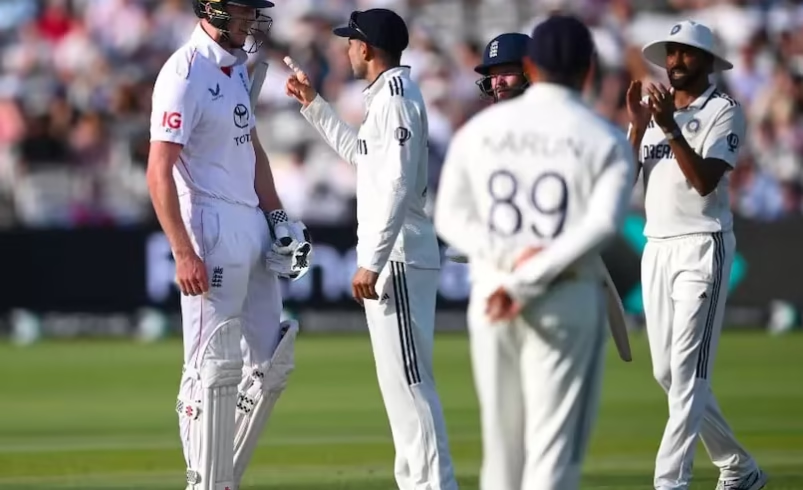England’s Tactics Criticized by India After Test Match Drama
- July 13, 2025
- 0

The third day of the Test match between England and India ended in high drama, with England’s opener Zak Crawley employing a delaying tactic that allowed the team to play just one over before stumps. This move, aimed at minimizing risk, did not sit well with the Indian team, particularly captain Shubman Gill. The tension on the field was palpable as both teams engaged in a heated exchange, highlighting the competitive spirit of Test cricket.
England’s bowling consultant, Tim Southee, addressed the media after the day’s play, defending Crawley’s actions as part of the game. He pointed out that similar tactics had been used by the Indian team earlier when Gill took a break for a massage. Southee’s comments suggested that such strategies are common in cricket and add to the excitement of the game. He humorously mentioned that Crawley would be assessed overnight, hoping he would be fit to continue.
India’s opener KL Rahul offered insights into the situation from an opener’s perspective. He acknowledged that Crawley’s tactic was understandable and part of modern cricket. Rahul emphasized that such incidents are now integral to the game and are often employed by openers to manage challenging situations. He expressed understanding of Crawley’s position, recognizing the pressure faced by batsmen in such scenarios.
Shubman Gill’s frustration was evident as he expressed his disappointment over not being able to bowl two overs before stumps. With six minutes remaining, Gill believed it was feasible to complete two overs, which could have increased India’s chances of taking a crucial wicket. The stump mic captured Gill’s emotions, reflecting his competitive nature and desire for a strategic advantage.
The incident underscored the theatrical elements often present in Test cricket. Both teams were highly motivated, understanding the significance of gaining an edge at critical moments. Rahul noted that securing a wicket at the end of the day’s play would have been ideal for India, highlighting how such tactics can influence match outcomes.